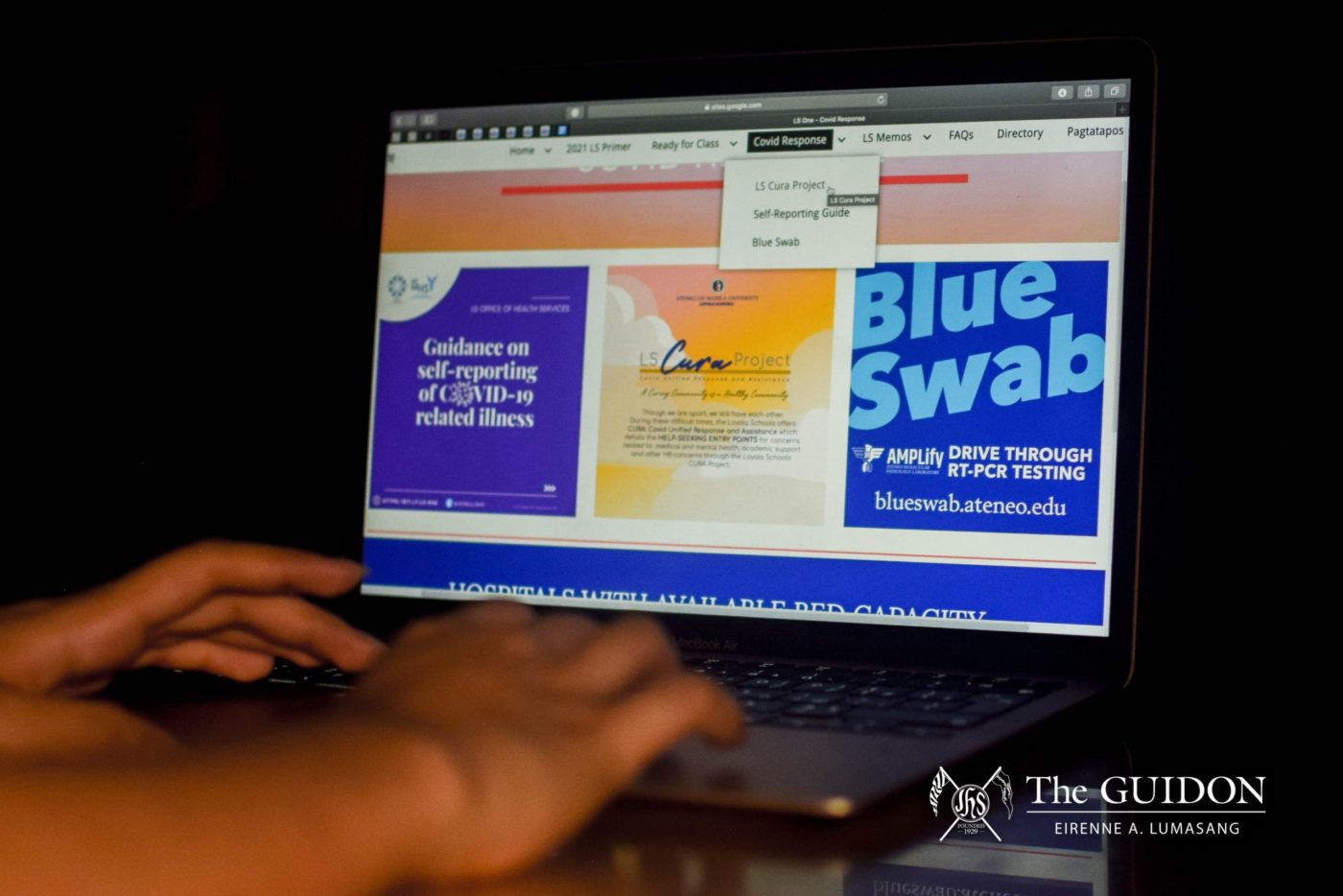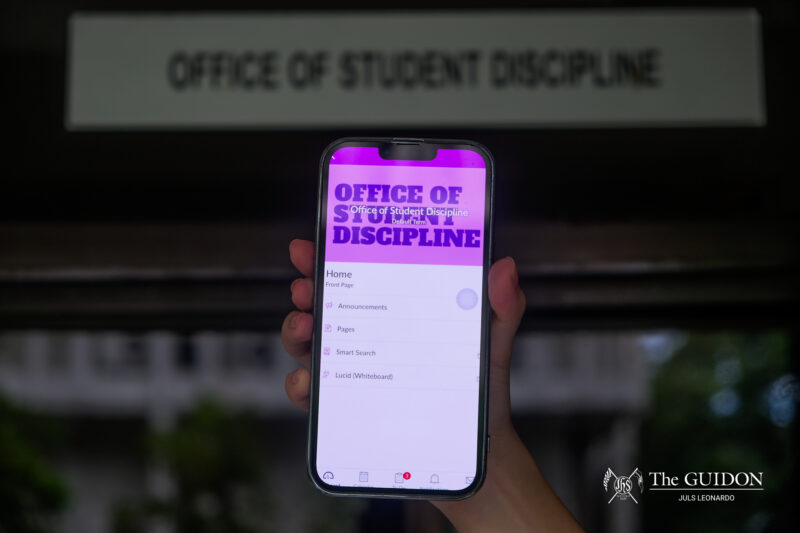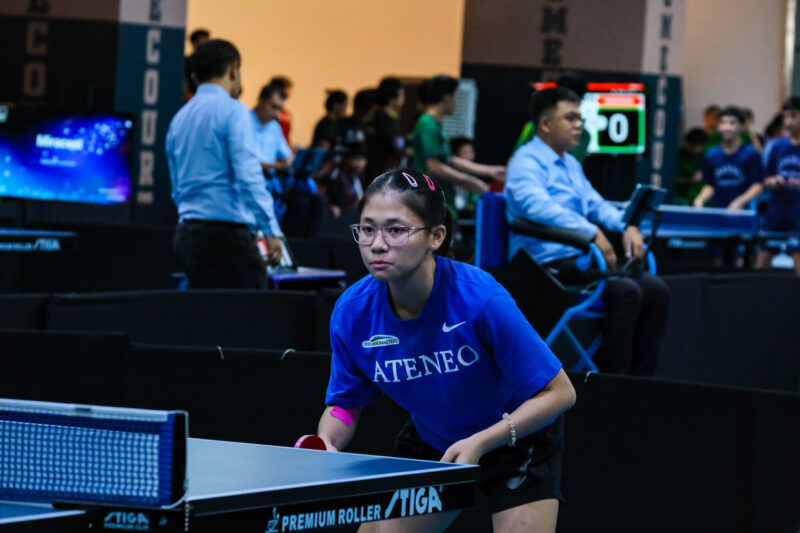IN RESPONSE to the growing COVID-19 pandemic-related concerns of the Loyola Schools (LS) community, the Office of the Vice President for the Loyola Schools (OVPLS) gave emphasis to the services provided by the LS Covid Unified Response and Assistance (CURA) Project.
Supported by the Task Force on COVID-19 Response, the OVPLS created the project last May in collaboration with different LS offices like the Loyola Schools Office of Guidance and Counseling (LSOGC), Office for Health Services, and Office of Campus Ministry.
According to Vice President for the Loyola Schools Maria Luz Vilches, PhD, the LS Cura Project provides updated information to members of the LS community on help services available. These channels are focused on addressing challenges related to medical, mental health, academic support, and human resources.
Organized network
Besides providing information to members of the LS community, Student and Administrative Affairs Associate Dean Marie Joy Salita said that the LS Cura Project was created to effectively communicate the concerns of the LS students and employees.
According to her, the project operates alongside the services provided by the LS One and bridges the pandemic-related concerns of the LS community towards the proper channels.
“CURA is specifically servicing the COVID-19 related needs. [And] all the other information, communication, and student needs are responded to in the different sections of the LS One,” she said.
Salita further explained that it was necessary to have different help options available for both LS students and employees since there are different forms of support needed.
Additionally, Vilches mentioned that the LS Task Force for Covid-19 Response was created to formalize the collaboration among networks of offices, departments, and student groups that respond to the pandemic situation. In line with this, the LS CURA centralizes the network into one website and lists down the offices that employees and students may contact.
For example, spiritual-pastoral concerns are also supported by including the contact details of the Jesuits, Chaplains, and Campus Ministers. This is in addition to the involvement of other offices where academic, medical, and mental health matters can be coursed.
Collaborative effort
Prior to the launch of the CURA Project, LSOGC Director Gary Faustino said that there were already discussions among the University offices to look for ways to address the psychosocial concerns happening because of the ongoing pandemic.
Faustino explained that although the LSOGC continues to accommodate students for counseling, they cannot be the only office handling the LS community because of limited capacity. He added that students still carry concerns about confidentiality and worry that what they say during counseling sessions will be shared with their families.
According to Faustino, the LSOGC keeps a strict protocol for confidentiality and will only breach protocol when a student becomes a danger to their own self or to others. However, he also acknowledged that not everyone looking to seek help would want to avail of counseling services.
He emphasized that there was a need for collaboration among the different University offices and to enable a multidisciplinary approach in helping the LS community.
“For example, you’re not spiritual and you want psychological [help]. You go to Bulatao. Or if you’re okay with psychological [approach], but you want the spiritual side, then you go to Emmaus. Or if you’re more of the social action type and you want to see it in that perspective, then you can go to the Office of Social Concern and Involvement,” Faustino said.
Other means of support
Despite having the LS CURA Project in place, the LSOGC has taken other measures to help the LS students. Faustino said that they have improved their marketing arm by hosting podcasts and creating publicity materials in hopes of encouraging students to attend counseling sessions, even just to destress.
“We consider ourselves as a secondary care. Primary care would be your next friend, the person beside you, your family, and everyone else. […] It’s more purposive. When ventilating to people doesn’t work anymore or you’re already manifesting certain behaviors that need to be addressed in a professional way, then that’s secondary care. That’s us,” Faustino said.
He also mentioned that the LSOGC is working together with the Sanggunian and other student organizations to initiate peer support group programs. Additionally, the LSOGC has also been hosting webinars that cater to the students’ mental health and wellbeing.
Salita further encourages members of the LS community to bring up their concerns or give feedback so that the administration knows what to work on for improvement.
“We are really aware that it’s not a perfect system, there really is no perfect system. That’s why we are open to all feedback. We just want some sort of a context on the feedback students give,” Salita clarified.







